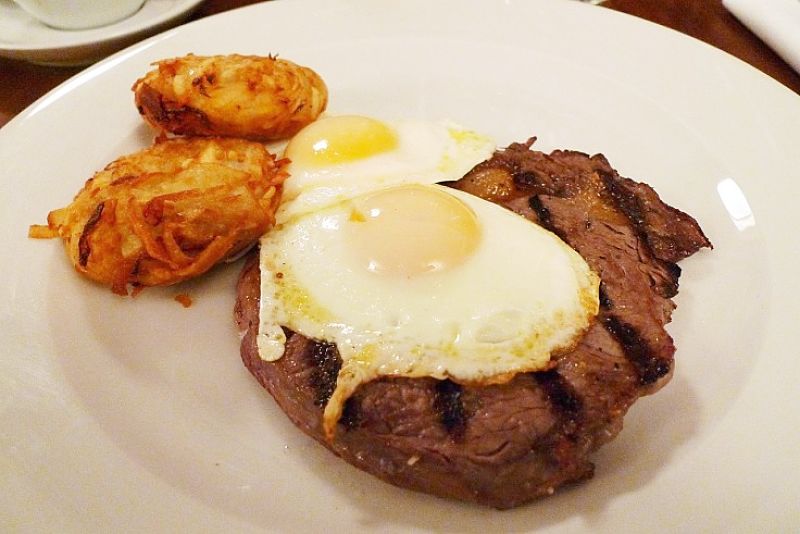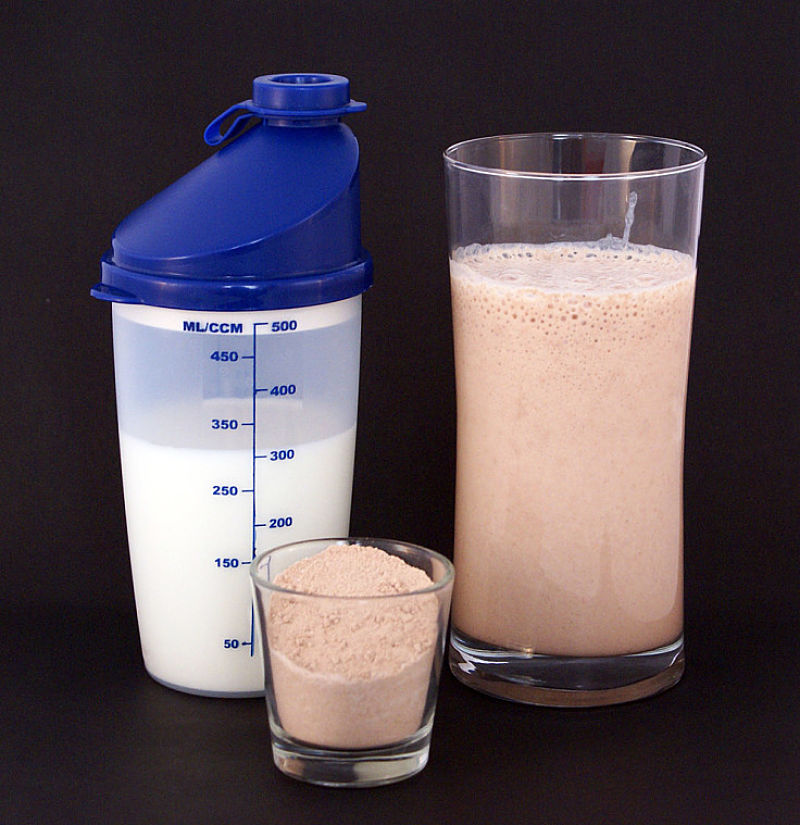Are Large Breakfasts, Small Dinners Healthy for Athletes, Dieters and Everyone?
Several recent studies have shown the time of the day when most calories are eaten does affect athletic performance and weight loss strategies.
As many people try to cut down on their food intake through eating less for one meal to meet calorie restrictions, the issue raised is which meal should be omitted or reduced in size.
Many people skip breakfast and have a large evening meal. Some have a large breakfast and a very light lunch and a normal dinner.
Many people have claimed that eating a full breakfast with lots of protein such as eggs, steak and bacon helps because it is more satisfying at that time of day.
The other claim is that a large breakfast increases the sense of 'fullness' during the morning, and postpones the hunger pangs that can lead to snacking.
Too many snacks between meals ruins many diets. This articles looks at the latest research findings to try to glean some guidance about which meal to miss during the day
Are Large Breakfasts, Small Dinners Healthy for Athletes, Dieters and Everyone
Research Findings about Relative Value of Meals: Breakfast, Lunch and Dinner
The total number of calories eaten by the groups was the same. All the women had moderate fat and carbohydrate diets. The total calories consumed in each as was 1,400 calories, which is a calorie restricted diet. Blood tests for various parameters relating to the health risks of obesity were monitored. Hunger and satiety were also assessed. Weight and waist circumference changes were tracked over a period of 12 weeks.
The Diet for Two Groups of Women was a follows:
- Group 1 (BG) - 700 Cal breakfast, 500 Cal lunch, 200 Cal Dinner
- Group 2 (DG) - 200 Cal breakfast, 500 Cal lunch, 700 Cal Dinner
The big breakfast group (BG) showed the following differences compared with those that ate a small breakfast:
- greater weight loss: 17.8 pounds (BG) compared with 7.3 pounds (DG)
- greater waist circumference reduction: 3 inches (BG) compared with 1.4 inches (DG).
- lower fasting glucose levels
- lower insulin levels
- lower ghrelin levels (hormone related to appetite and 'fullness')
- mean triglycerides in the blood was reduced by 33%
- mean hunger scores were significantly lower, 1-2 hours after breakfast
- satiety scores were significantly higher during mid-morning
- the spikes in blood glucose level that often occur after a normal meal, did not occur with a large breakfast.
The researchers concluded that eating a high-calorie breakfast and a small lower calorie dinner, late in the day, was beneficial for controlling obesity. But, this only works if the meal size at dinner is kept small and snacks are under control.
Does Protein at Breakfast Make a Difference in Suppressing Hunger Pangs for Longer
Another study conducted in 2012, showed that eating proteins for breakfast including eggs, kept people feeling fuller for longer.
The aim of the study of adolescents was to compare the effect of a protein-rich break versus a normal-protein breakfast on appetite and food intake.
The outcomes were compared with those when the adolescents skipped breakfast (which they normally did, before the study.
The results were:
- Eating breakfast led to an increased sense of fullness in the period before lunch and hormone levels showed reduced appetite.
- A breakfast rich in dietary protein provides additional benefits via further reductions in appetite and overall energy intake throughout the day.
These findings confirmed previous claims that getting adolescents to eat a protein-rich breakfast might be an effective in providing better appetite control in young people so that they eat less throughout the day.
Below are some of the suggested ways to boost calories at breakfast with extra protein
- High Protein Breakfast Shake/ Smoothie: Mix 1 cup low fat milk, 1 tablespoon of low fat yogurt,1/2 cup fresh fruit or berries, 1/4 cup of wheat germ and add 2 teaspoons of nuts or peanut butter. Add ice and process in a blender or food processor until smooth.
- Yogurt and berries on a wholemeal muffin: Put the berries on muffin halves and top with a tablespoon of fresh low-fat yogurt.
- Baked potato, stuffed with diced ham, cheese and salsa.
- Breakfast Sandwiches - made with ham, poached or scrambled eggs and topped with mustard.
- Poached eggs are much healthier than fried ones.
- Serve eggs with bacon, steak or sausages.


